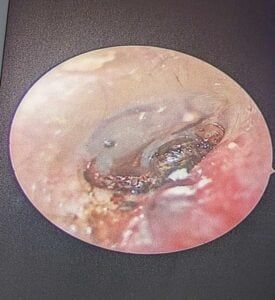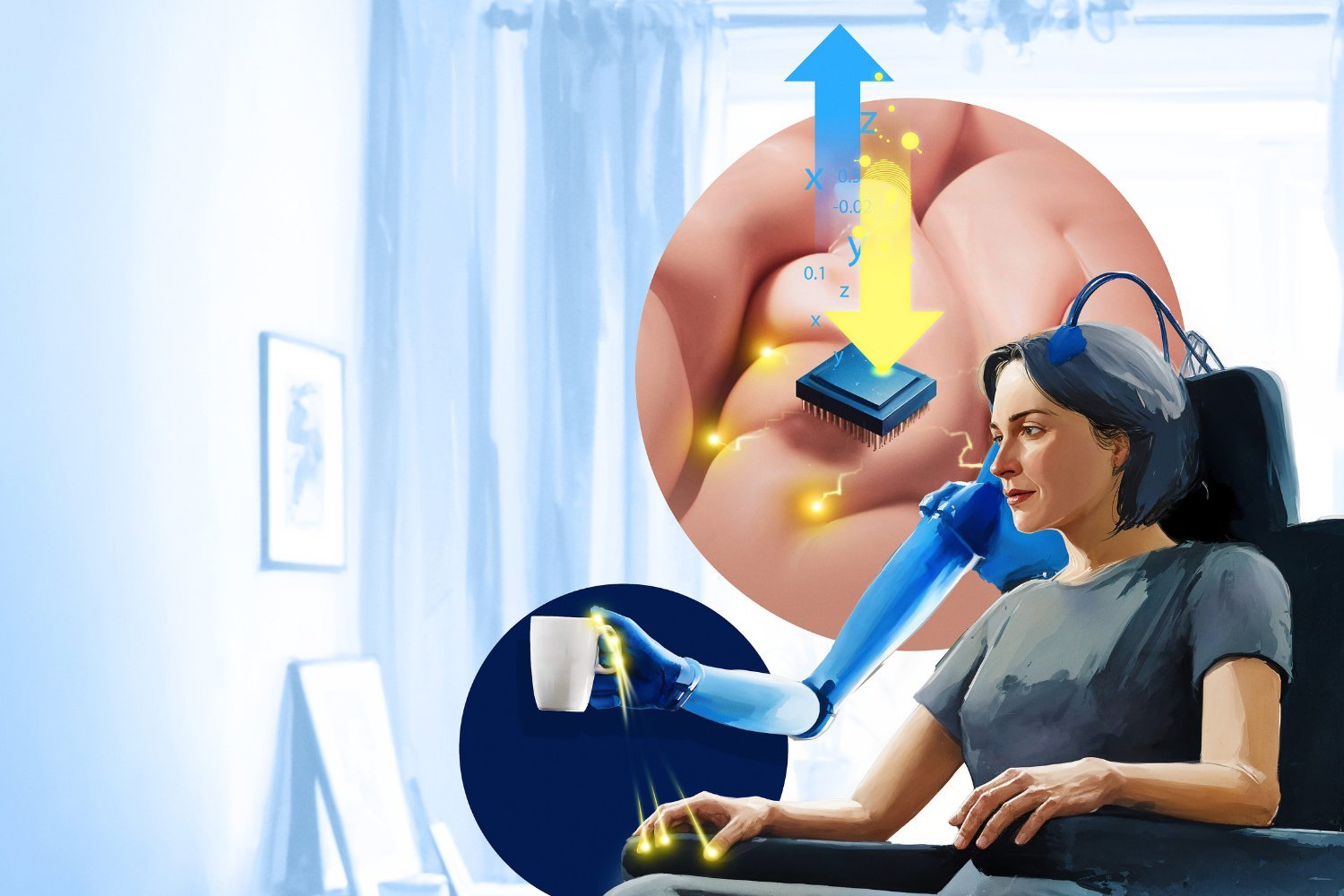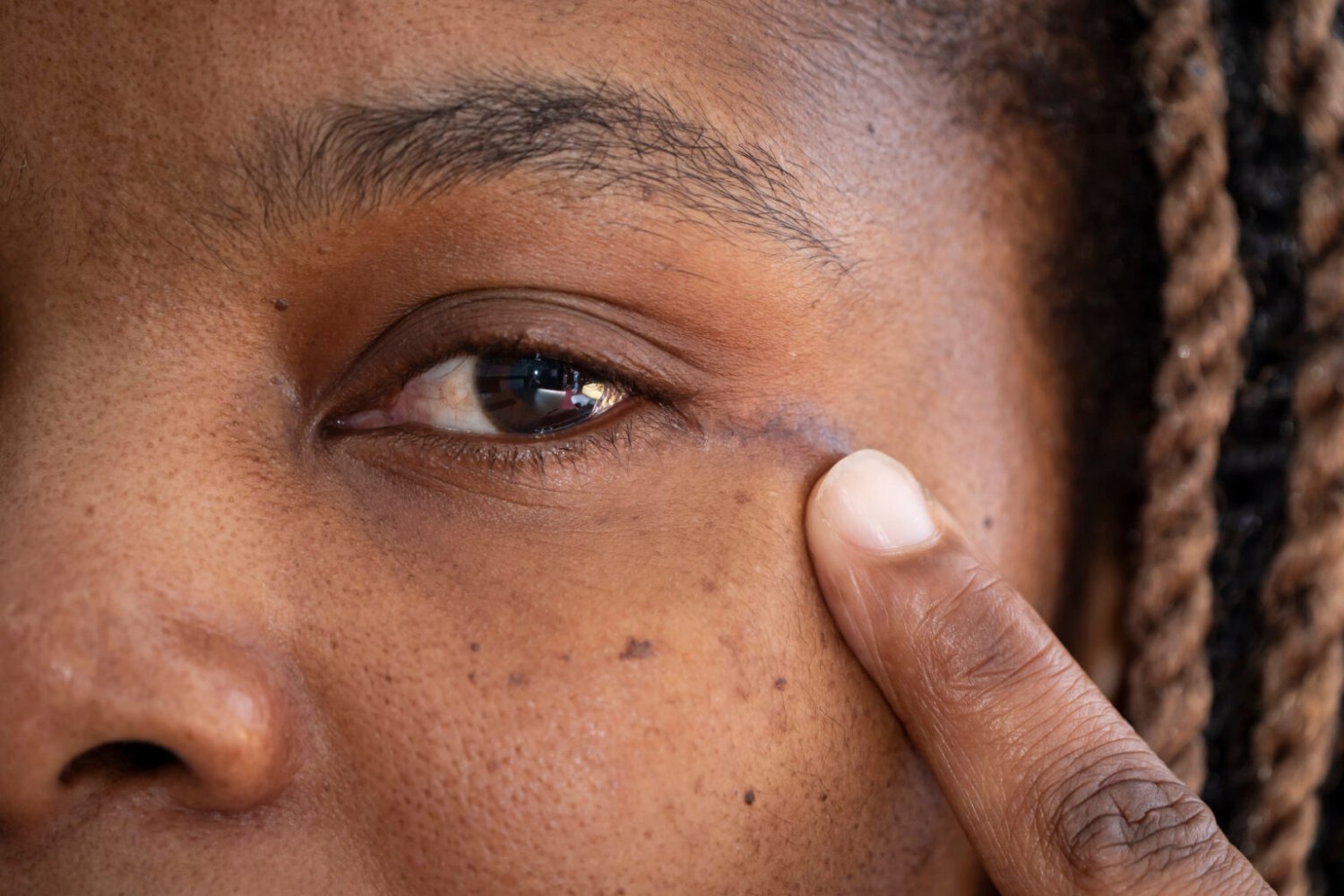A 21-year-old woman in Nepal experienced severe hearing loss due to a tick lodged in her ear, according to a recent case report. The woman presented with ear pain, vertigo, and vomiting, and doctors discovered a dead tick causing inflammation in her inner ear. This unusual case highlights the potential for ticks to cause more than just tick-borne illnesses.
Doctors at the B.P. Koirala Institute of Health Sciences in Dharan, Nepal, documented the case of the young woman who initially experienced piercing pain in her right ear. The pain worsened over a week, and she subsequently developed vertigo, tinnitus, and significant hearing loss. Tests revealed severe-to-profound hearing loss in the affected ear.
 The woman’s tick-infested ear. © Shah et al/Journal of Medical Case Reports
The woman’s tick-infested ear. © Shah et al/Journal of Medical Case Reports
Upon examination, doctors discovered the dead tick lodged within the woman’s ear canal. They believe the tick’s bite and subsequent release of toxins from its saliva into the middle ear caused inflammation, leading to the observed symptoms. While a small tear in the eardrum was suspected, it appeared to have healed by the time of the examination.
Using suction and forceps, the medical team carefully removed the tick. The woman received steroids, pain medication, and antibiotics to address the inflammation and prevent infection. Remarkably, a month later, her hearing had fully recovered, and her ear pain was resolved.
 Tick removal process. © Shah et al/Journal of Medical Case Reports
Tick removal process. © Shah et al/Journal of Medical Case Reports
While ticks are known vectors for various diseases, this case emphasizes a less common but significant risk: physical obstruction and damage within the ear canal. While insects or arachnids occasionally find their way into human ears, they don’t typically inhabit them intentionally. This incident underscores the importance of seeking medical attention for any unusual ear-related symptoms.
This case study, published in the Journal of Medical Case Reports, highlights the effectiveness of prompt and careful tick removal in preventing long-term complications. It serves as a reminder of the unexpected ways ticks can impact human health and the importance of vigilance in tick-prone areas.
The successful outcome of this case demonstrates the importance of prompt medical intervention. While ticks are primarily known for transmitting diseases, this case highlights their potential to cause direct physical harm. The woman’s complete recovery underscores the effectiveness of careful tick removal and appropriate medical treatment.
Published in the Journal of Medical Case Reports. While insects and arachnids (spiders) sometimes end up in our ears, they generally don’t seek to live there, contrary to some urban legends. This case serves as a cautionary reminder about the potential risks associated with ticks.











